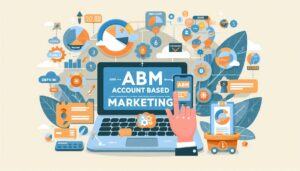The Role of AI in Personalized Marketing
Introduction
In a world where every consumer is unique, they expect more than generic messages and products; they need personalized experiences that speak directly to their individual preferences and needs. Personalized marketing is a marketing strategy that tailors content, product recommendations, and communication to individual customers based on their specific characteristics, preferences, and behaviors.
In the last few years, AI has emerged as a powerful tool in the marketing industry due to its ability to process and analyze vast amounts of data in real-time. It has proven to be helpful for businesses in many ways and boosts return on investment (ROI) by helping marketers improve customer engagement, optimize ad spend, and identify new growth opportunities. Now let us move further and understand more about personalized marketing.
Understanding AI-based Personalized Marketing
Personalized Marketing, which is also known as one-to-one marketing or individualized marketing, uses data to deliver tailored messages and experiences to individual customers. AI-based personalized marketing is a strategy that uses artificial intelligence to deliver personalized experiences to individual customers. It can be done through a variety of channels, including email, social media, website, and mobile.
The goal of personalized marketing is to create a more relevant and engaging experience for customers, which can lead to increased sales, improved customer satisfaction, and stronger brand loyalty. It involves the collection and analysis of large amounts of customer data to understand their preferences, behaviors, and interests. By collecting information, AI algorithms can create and deliver personalized content, product recommendations, and marketing messages through various channels, such as websites, email, social media, and advertising.

Role of AI in Personalized Marketing
AI-based personalized marketing is like having a personal shopper for your online experience. It plays an important role in personalizing marketing for customer’s hassle-free experience. It enables businesses to deliver highly tailored experiences to individual customers. AI-powered personalization is crucial for providing customers with the services they want exactly.
Following are the key roles, AI plays in personalizing marketing:
Content Personalization
AI-powered recommendation engines analyze customer behavior to suggest products, services, or content that match individual preferences. Content personalization includes email marketing, website content, social media, and more.
Data Collection and Analysis
AI algorithms can collect and process vast amounts of customer data, including browsing history, purchase behavior, demographic information, and social media interactions. Machine learning models analyze this data to identify patterns, trends, and customer preferences.
Fraud Detection and Prevention
AI algorithms can detect unusual behavior, protecting both businesses and customers from fraudulent activities.
Customer Segmentation
AI can distribute customers into specific groups based on shared characteristics or behaviors. This allows businesses to target different segments with personalized content and offers.
Privacy and Compliance
AI helps businesses manage customer data securely, ensuring compliance with privacy regulations like GDPR or CCPA.
Ad Targeting and Retargeting
AI-driven ad platforms use customer data to target ads to specific segments and retarget users who have shown interest in a product or service.
Predictive Analytics
AI can predict future customer behavior, such as which products a customer is likely to buy or when they might make a purchase.
Benefits of AI in Personalized Marketing
AI-based personalized marketing offers numerous benefits for businesses to improve their marketing strategies and enhance customer experiences.
Here are some of the key advantages:
Improved Customer Engagement:
Personalized marketing engages customers on a deeper level by delivering content highly relevant to their needs and preferences. This increased engagement can lead to higher click-through rates, longer website visits, and more social media interactions
Higher Conversion Rates:
Personalized marketing campaigns tend to have higher conversion rates because they target customers with products or services that align with their interests and past behaviors. When customers feel that a brand understands their needs, they are more likely to make a purchase.
Real-Time Adaptation:
AI can analyze customer data in real-time and adjust marketing messages and strategies accordingly. This adaptability is crucial in a rapidly changing digital landscape.
Better Customer Insights:
AI-powered personalization relies on data analysis, which provides valuable insights into customer behavior, preferences, and trends. These insights can inform future marketing strategies and product development.
Enhanced Customer Experience:
Personalization creates a more seamless and enjoyable customer experience. Customers appreciate brands that understand their preferences and provide tailored recommendations, resulting in increased satisfaction and loyalty.
AI-Driven Personalization Techniques
Deep Learning:
Deep learning models, like neural networks, can process complex data and learn complex patterns in user behavior for highly accurate recommendations.
Content-Based Filtering:
Content-based filtering takes into account the attributes of items (e.g., products, articles) and matches them to a user’s profile, making recommendations that align with the user’s past preferences.
Collaborative Filtering:
Collaborative filtering algorithms analyze user behavior and preferences to make recommendations based on patterns of similar users. There are two main types: user-based and item-based collaborative filtering.
Natural Language Processing (NLP)
NLP analyzes text data, such as product descriptions or customer reviews, to understand sentiment, topics, and user preferences. This information can inform content recommendations.
Conclusion
As technology is evolving, AI is becoming an essential tool for businesses to stay competitive. It helps improve customer engagement, conversion rates, and loyalty. With AI, businesses can make better use of their marketing budgets and adapt to changing customer behaviors in real-time. Therefore, it’s crucial for businesses to recognize the potential of AI in transforming marketing strategies.



